Taiwan defies Beijing and elects ‘troublemaker’ Lai as president
Taiwanese voters shrug off Beijing’s war threats and deliver a historic third term to the ruling Democratic Progressive Party’s William Lai.
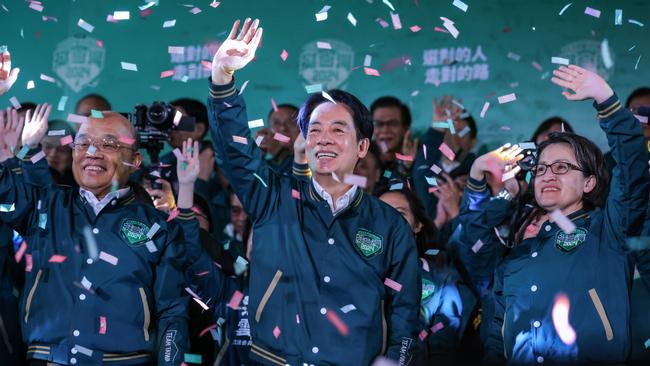
Taiwanese voters have given the ruling Democratic Progressive Party’s (DPP) an unprecedented third term as president, delivering a historic win to William Lai in defiance of stark warnings from Beijing that electing him could trigger war.
The Australian government on Sunday congratulated Mr Lai, the current vice president, on his victory, and “the people of Taiwan” for the “peaceful exercise of their democratic rights.”
“The smooth conduct of the elections is a testament to the maturity and strength of Taiwan’s democracy,” said a spokesman for the Department of Foreign Affairs and Trade.
“Australia looks forward to continuing to work with Taiwan to advance our important trade and investment relationship, as well as our deep and longstanding educational, scientific, cultural and people-to-people ties,” the Australian government spokesman said.
Speaking in Taipei on Saturday night after the presidential election result was called, Mr Lai said the result in the closely watched contest was a “victory for the community of democracies”.
“The Taiwanese people have successfully resisted efforts from external forces to influence this election. We trust that only the people of Taiwan have the right to choose their own president,” he said.
He said he would work to build a more collaborative political culture with his rivals, declaring it was time to move on from the divisive rhetoric of the tightly fought election.
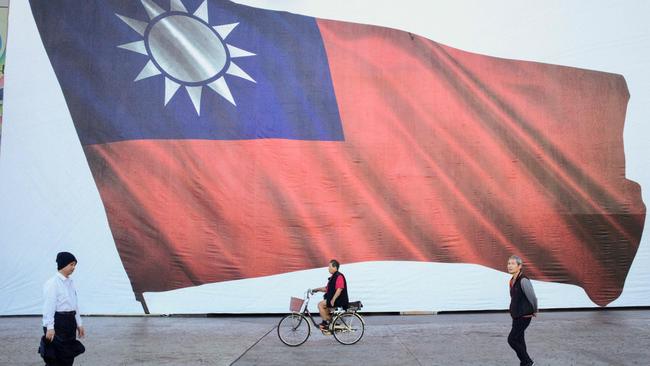
Since Mr Lai, a former doctor, was chosen as the DPP’s presidential candidate last March, Beijing has waged a campaign even his political opponents have admitted was unprecedented in its scale.
Lai won with 40 per cent of the vote, according to the Central Election Commission, comfortably beating Hou Yu-ih from the largest opposition party, the Kuomintang (KMT), who received 33.5 per cent of the vote. Ko Wen-je from the upstart Taiwan People’s party came third with 26.4 per cent, taking votes from both of the established parties.
Diplomats and analysts have forecast Beijing would respond angrily to a victory by Mr Lai.
“We’re set up for another four years of pretty challenging cross strait relations,” said Kharis Templeman, an expert on Taiwanese politics at Stanford University.
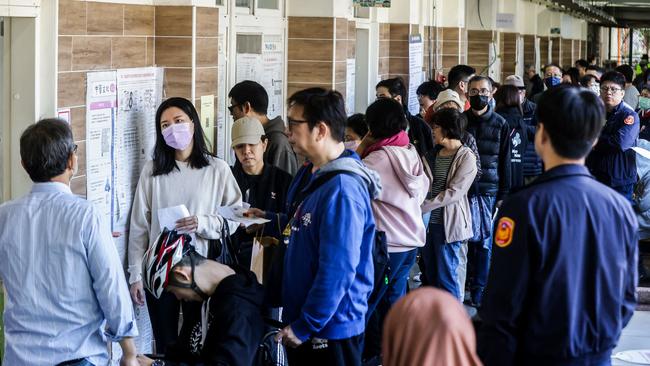
A spokesman for China’s State Council Taiwan Affairs Office said the election result would do nothing to prevent Beijing’s push for reunification.
“Our stance on resolving the Taiwan question and realizing national reunification remains consistent, and our determination is as firm as rock,” Chen Binhua told the CCP’s mouthpiece The Global Times.
“We will adhere to the 1992 Consensus that embodies the one-China principle and firmly oppose the separatist activities aimed at ‘Taiwan independence’ as well as foreign interference,” Mr Chen said.
The DPP’s proudly Taiwanese identity infuriates Beijing, whose Communist Party leaders believe it is working to formalise Taiwan’s independence from China.
Xi Jinping’s government cut all contact with Taipei after Tsai Ing-wen, a moderate figure in the DPP, was elected president in 2016, and has made it known that it is even more concerned about Mr Lai, who it has branded a “troublemaker” for his association with the party’s independence-leaning elements.
On the evening before the election, China’s military vowed to “smash” and Taiwanese independence “plots”, declaring the People’s Liberation Army was “on high alert”.
China’s Ambassador in Australia, Xiao Qian, also drew international attention by issuing an extraordinary election-eve statement, accusing Mr Lai’s party of adopting a “separatist stance” and warning of grave consequences of any “miscalculations” by Canberra in its future relations with Taiwan.
“If Australia is tied to the chariot of Taiwan separatist forces, the Australian people would be pushed over the edge of an abyss,” Xiao said.
Responding to the intervention by the Chinese Ambassador, a spokeswoman for Foreign Minister Penny Wong said it was “important that everyone respects the outcome of democratic elections.”
“Peace and stability is in all our interests. Australia does not want to see any unilateral change to the status quo across the Taiwan Strait,” the spokeswoman for the foreign minister said.
“Australia has a longstanding, bipartisan one-China policy, which has not changed. We will continue to build our deep and productive unofficial economic, cultural and people-to-people relationship with Taiwan,” Senator Wong’s spokeswoman said.
Shadow Foreign Minister Simon Birmingham said it was “inappropriate” for China to try to “dictate how Australia should engage with our partners.”
“All parties should respect the democratic will expressed by the Taiwanese people,” Senator Birmingham said.
“Any escalation in military activities or acts that risk instability, miscalculation or misadventure would be irresponsible,” he said.
On Saturday night, DPP supporters were euphoric at Mr Lai’s victory, however the party was on track to lose control of Taiwan’s parliament.
Between them, the two main opposition parties, the KMT, Beijing’s preferred political partner in Taiwan, and the new TPP are forecast to hold a majority of seats.
In his victory speech, Mr Lai said the result in the legislature showed the Taiwanese people wanted “check and balances” over its next government.
The president elect said the result of the legislative elections showed that “there are areas we must humbly review and look back on.”
Mr Laid said he would invite people from across Taiwan’s political spectrum to join his government and would “carefully study the policies and positions of my two electoral opponents”, looking for areas of agreement.
“As long as they bring benefit to the people and further our national development, they will be incorporated into my policy framework,” he said.


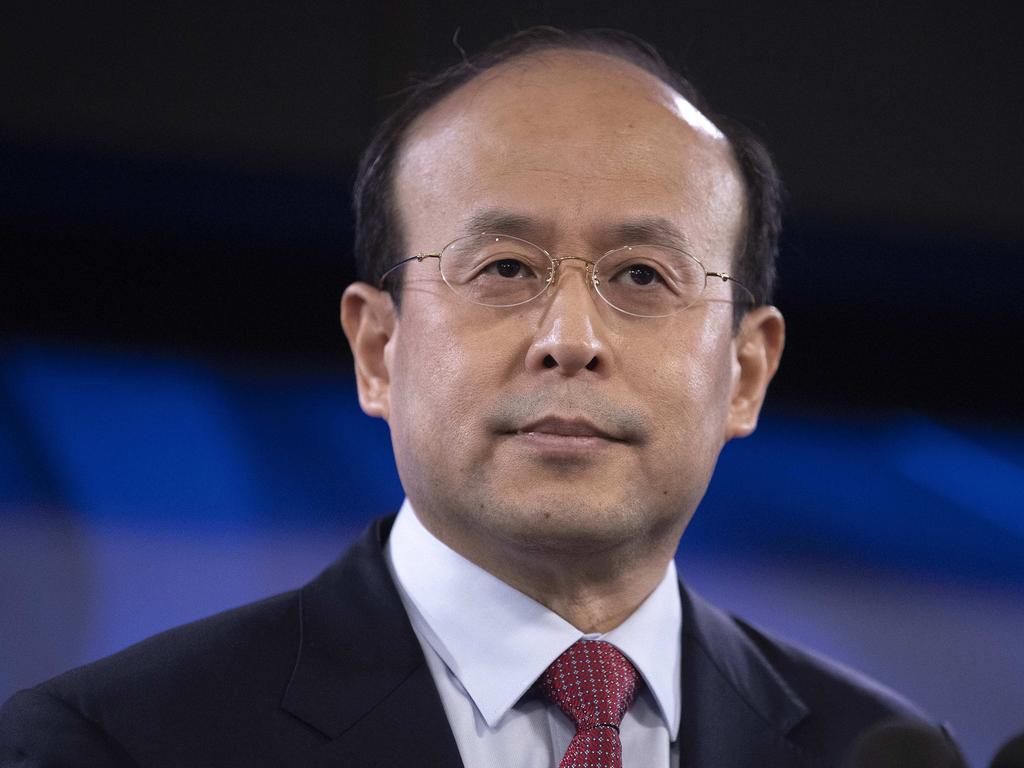
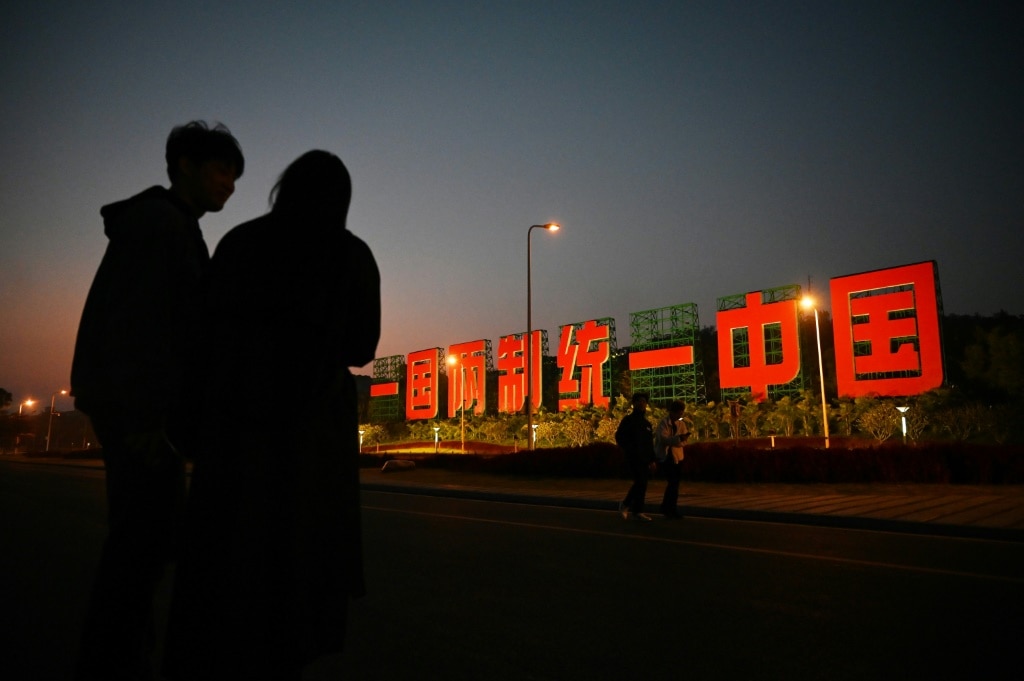
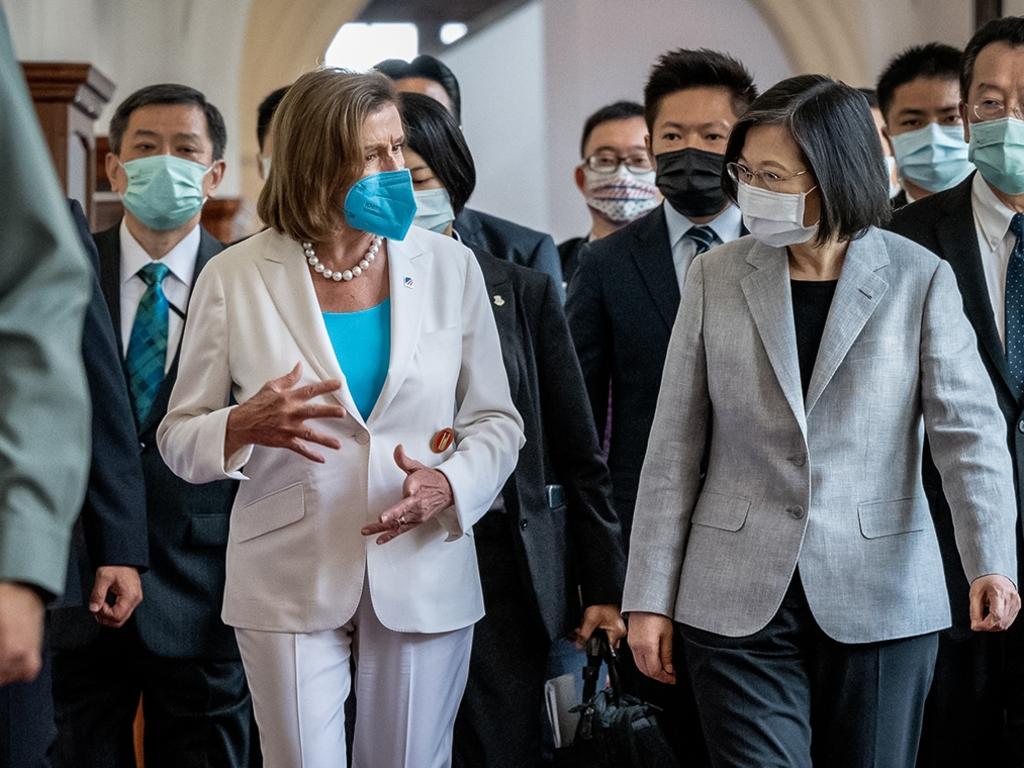
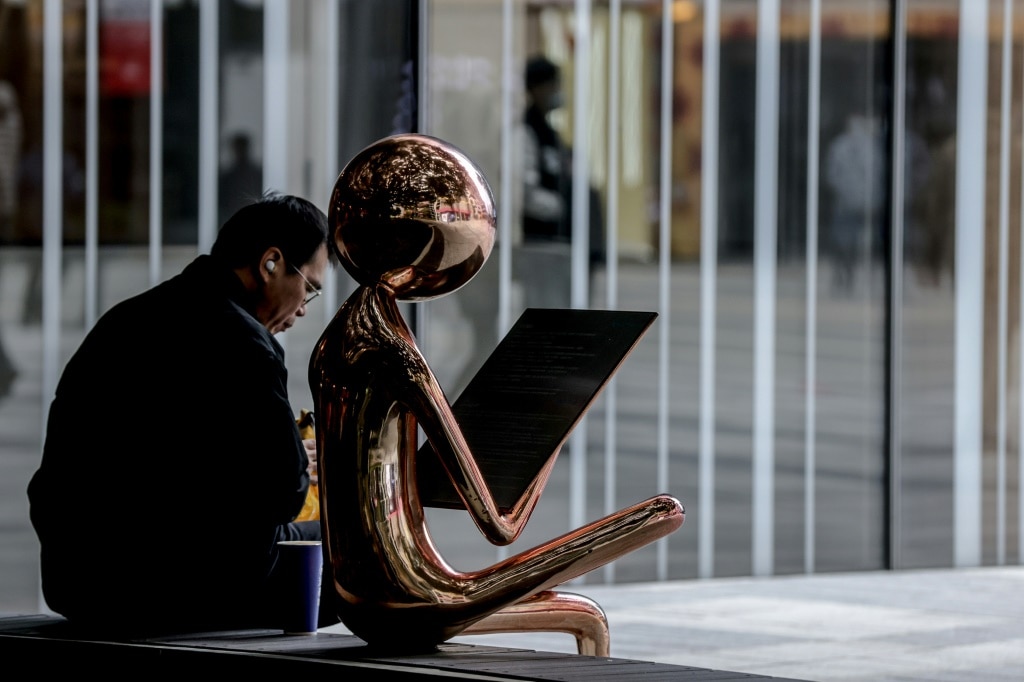


To join the conversation, please log in. Don't have an account? Register
Join the conversation, you are commenting as Logout